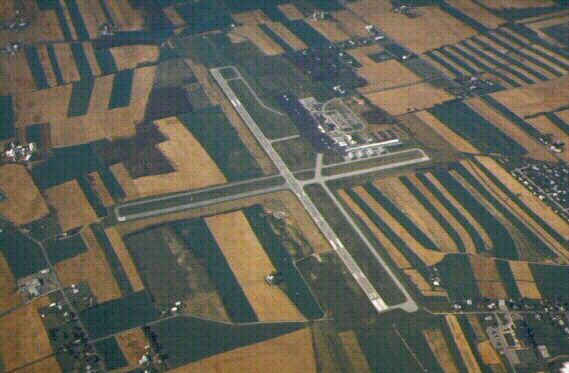

|
Of all the FAA/GAMA/industry-sponsored slide-tape presentations developed thus far, in support of FAA's Accident Prevention Program, this one, more than any other, embodies the crux of flying, the challenge of flying, which is the use of good judgment. A pilot prerogative is, effectively, a demonstration of judgment. It's the ability to make an "instant" decision which assures the safest possible continuation of the flight. Judgment is a series of evaluations you make, over a period of minutes, hours, or even days, to keep you out of danger. Good judgment guarantees the positive aspects of flying the freedom to walk to your aircraft, go flying, and return to earth, safely. Good judgment is an intangible component of flying which enhances safety. Good judgment can be the lifesaving edge in the midst of an unforeseen situation. General aviation flying is a safe mode of transportation, but with good judgment, it can be made safer. |
 |
Through education and experience, pilots and pilots-to-be can learn good judgment just as thoroughly as they learn the mechanics and basics of good flying. In fact, learning good judgment is just as much an important part of flying as learning to make good takeoffs and landings. What it takes is the ability to assimilate that all-precious commodity, called "experience", and then translate it into good judgment.
This learning process starts with training by a well-qualified, FAA certificated flight instructor (CFI) or at an approved school that employs CFI's in a programmed curriculum. There's nothing wrong with learning about flying from a relative or a friend who flies, but seek your formal training from a certificated instructor who is trained to teach flying. Bad habits are hard to break. The CFI is the key to safe flying. Whether you're taking a refresher course or getting checked out in a new, perhaps more complex, make and model, or just have a basic question, seek the guidance of a qualified instructor.
The best way to learn good judgment is through flying. You don't have to fly every day to be good-to be sharp-but you do have to fly and to practice often. Practice makes better pilots. What is needed, then, is to gain exposure to flying in small, digestible chunks, and to effectively evaluate this experience. This is how judgment is developed.
Ironically, we carefully and meticulously preflight our aircraft, but frequently fail to preflight ourselves-even in a cursory manner. Too often we forget that man is usually the weakest link in that crucial "man-machine" interface. Flying with others can offer an extra margin of safety by providing redundancy and "backup" in case you need it.
Seven Ways to Develop and Enhance Your Flying Judgment
Learn the correct mechanics of flying the first time around.
Get thoroughly checked-out in a new aircraft by a competent CFI.
Keep your knowledge current through study, and maintain your flying skills through practice. View your pilot's certificate as a "license to learn" more.
Take on new experiences, such as weather and night flying, one step at a time.
Invite a pilot-friend or just a friend to accompany you on your journey-chances are both of you will learn something.
Learn from the experience of others-both the good and the bad. There is no need to duplicate mistakes.
Attend safety seminars, such as this one, as often as you can.
Pilots: You Have Certain Prerogatives - - -
What is a pilot prerogative? According to Webster, a prerogative is "an exclusive or special right, power or privilege belonging to a person, group or class of individuals."
Flight Service Stations
Visit any flight service station and obtain a weather briefing. It should be:
-complete,
-clear, and
-concise.
But you must ask for the information you require.
If you call in, tell the briefer:
-whether you plan to fly VFR or IFR,
-your route of flight,
-your type of aircraft,
-your registration number,
-the time you plan to depart, and
-use your flight planner.
Before Taxiing
Tune in ATIS and write down the recorded information. When applicable, call for IFR (or Stage III VFR) clearance before starting your engine.
If you have any doubt about the details of your clearance, ask for confirmation or additional information-that's your prerogative!
If you don't want an intersection takeoff, ask the tower for use of the full length of the runway.
be aware of wake turbulence . . . it can be very dangerous!
If the crosswind is more than you think you can handle, then use another runway or wait until the wind abates or shifts.
Enroute
Use your transponder when flying VFR as well as IFR.
When practical, avoid routes that take you beyond your engine-off "best gliding" distance from land or a suitable landing area.
Report any unforeseen weather conditions.
Get current enroute weather information and, if you don't like what you hear-or see firsthand-land!
Descent
Tune in ATIS about 30 miles from your destination.
Contact approach control and advise them of your:
-aircraft type and registration number,
-position,
-altitude,
-intentions, and
-that you have the ATIS information.
If approach control turns you toward weather, or rising terrain, ask for another vector-that's your prerogative!
Plan your enroute descent to best allow you to see other aircraft and to prevent excessive engine cooling.
On landing, as on takeoff, if you don't like the crosswind, ask for another runway-or land at another airport.
Maintain adequate separation between your aircraft and large, heavy aircraft, to avoid wake turbulence.
In Summary, we all need to work on improving our judgment because, from good judgment, comes the ability to make good decisions, and to correctly exercise our pilot-in-command privileges. Good judgment is the priceless element gained through proper training, through purposeful proficiency flying, and through experience. Flying is not a trivial exercise; to do it right takes time, effort, discipline, money, and above all, precise skills, both mental and physical. But, the challenge of flying brings Its own rewards, through fulfillment of dreams and through the freedom to go where you want to, and when you want to, safely.
Remember, you are pilot-in-command.
Air Traffic Controllers are there to serve you, but it's a two-way street-communicate.
Use your pilot prerogatives!
| ?AvStop Online Magazine Contact Us Return To News |